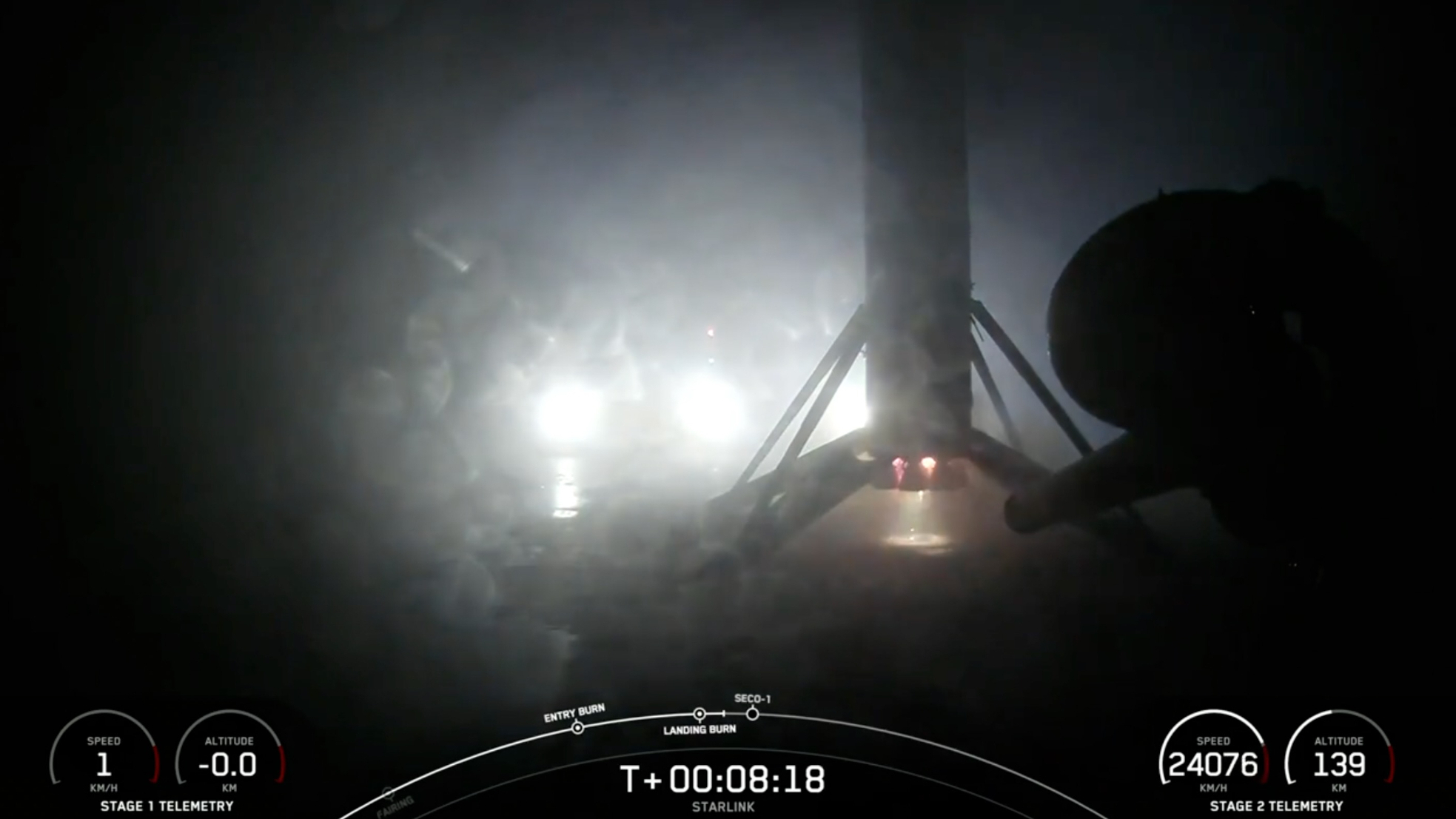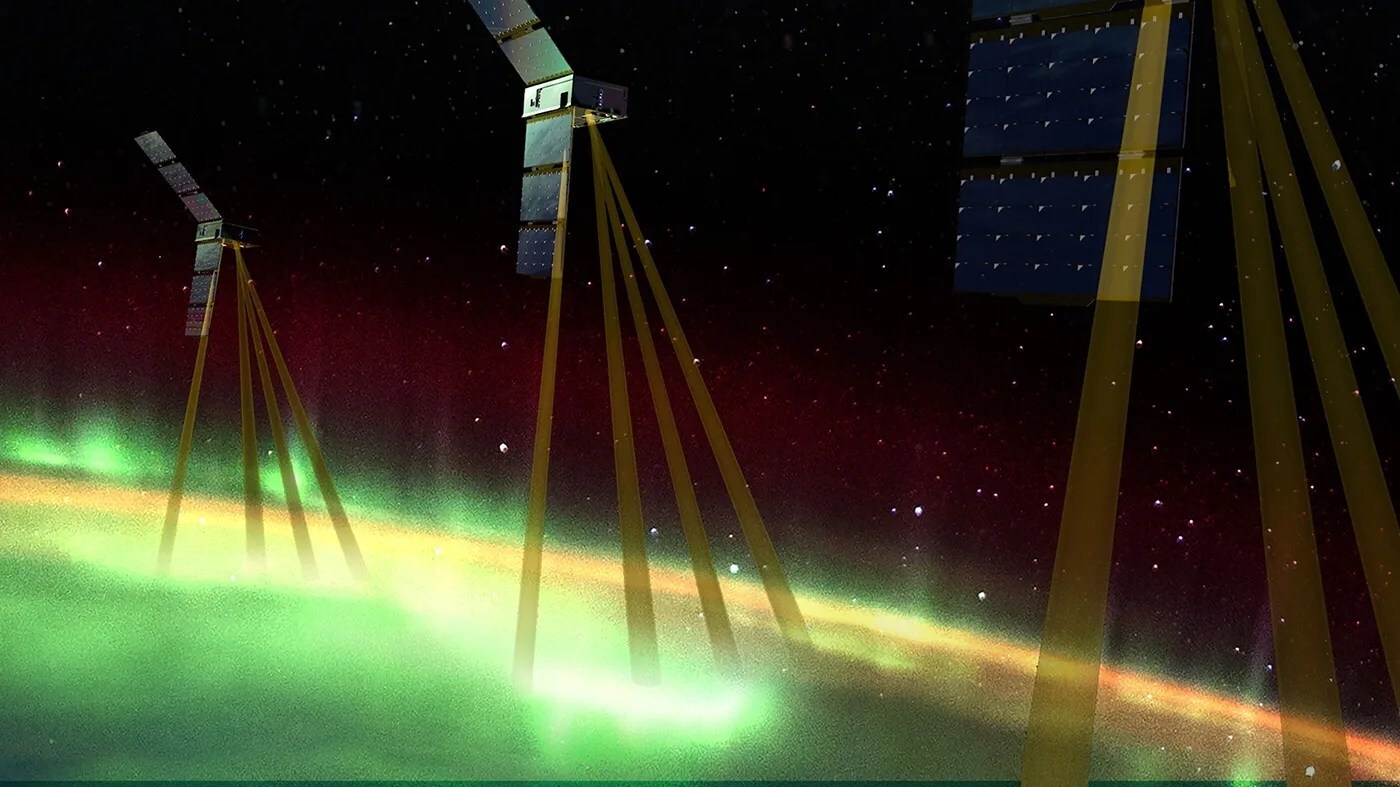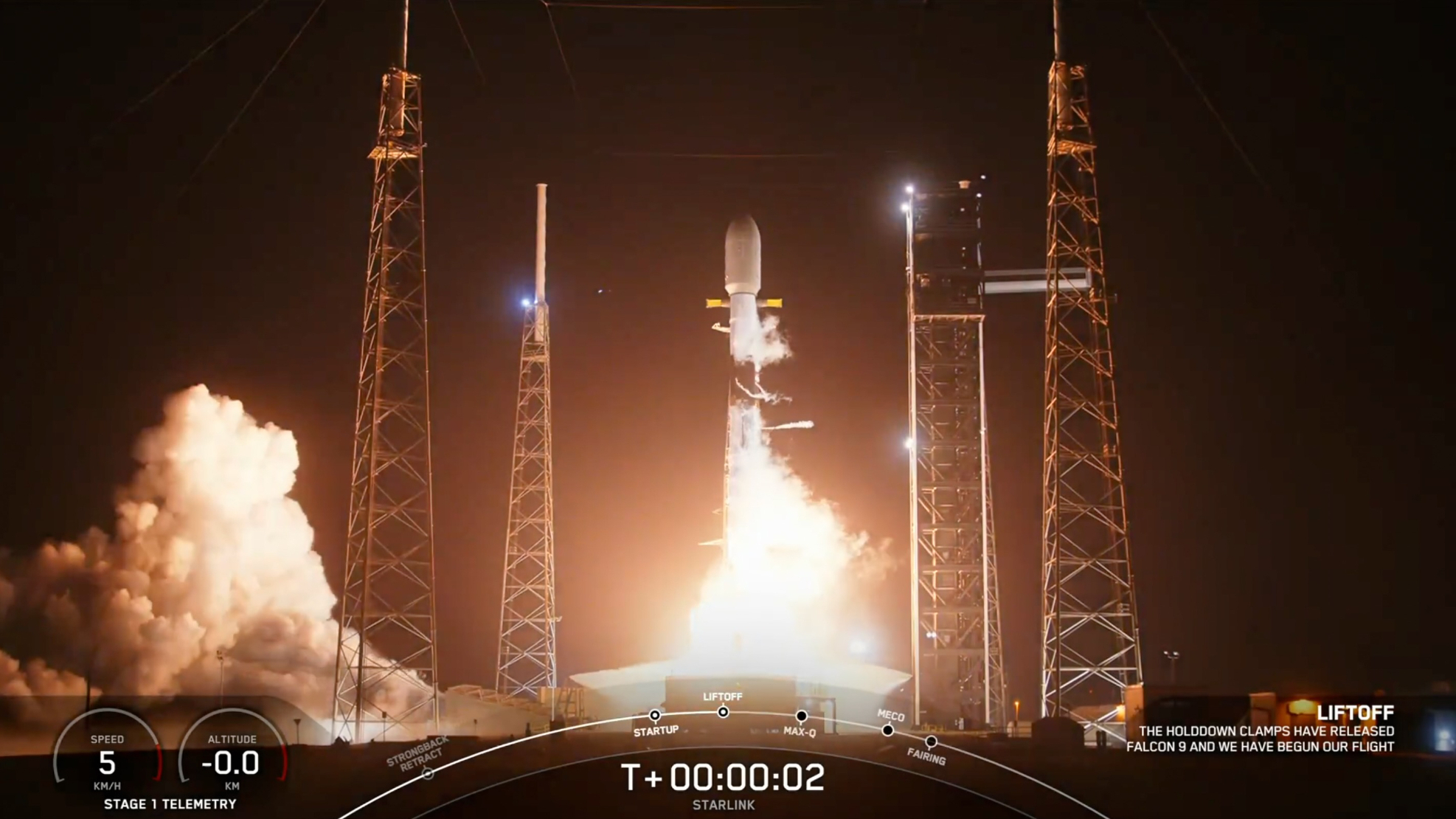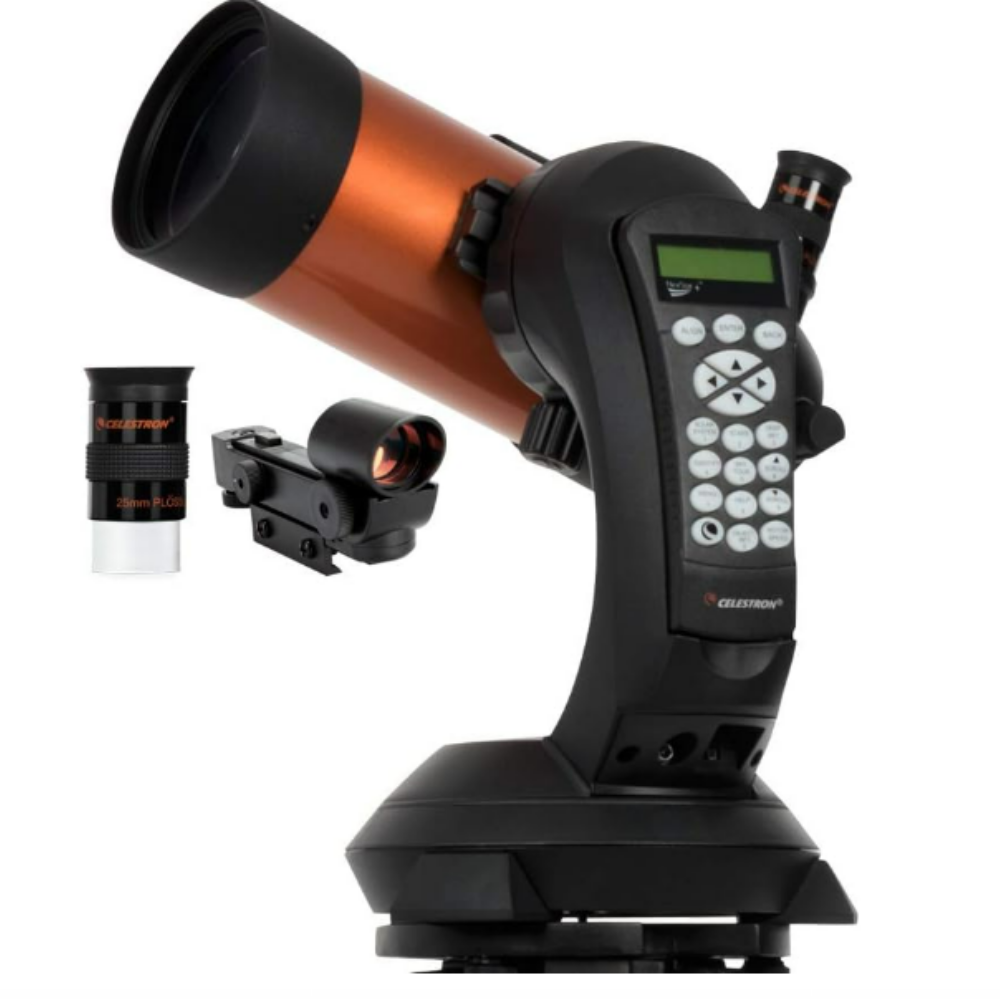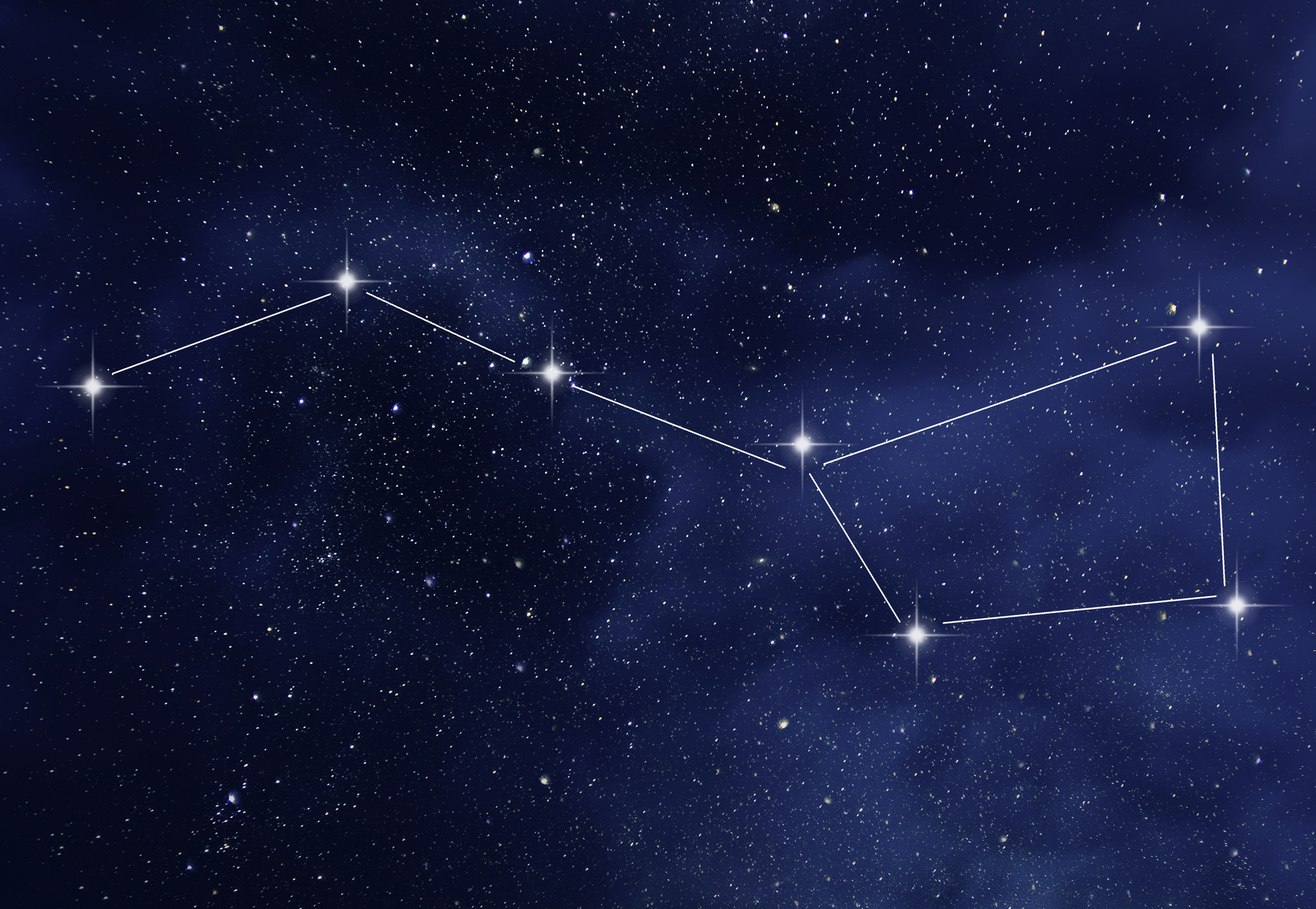SpaceX sent another batch of Starlink satellites to orbit tonight (April 28), its second liftoff of the day. A Falcon 9 rocket carrying 23 Starlink broadband satellites — including 13 with direct-to-cell capability — lifted off from NASA’s Kennedy Space Center in Florida tonight at 10:34 p.m. EDT (0234 GMT on April 29). It was the second Starlink group to fly today; a Falcon 9 lofted 27 of the internet craft from California’s Vandenberg Space Force Base earlier today. You may like The Falcon 9’s first stage rests on the…
Read MoreCategory: Solar System
Our solar system
Newly launched NASA satellites open eyes to start studying ‘auroral electrojets’ in Earth’s atmosphere
The first bits of data have come back from the trio of small satellites that make up NASA’s EZIE (Electrojet Zeeman Imaging Explorer) mission, which aims to solve some mysteries surrounding the “auroral electrojet” phenomena in our atmosphere. The “first light” observations are promising, and NASA says the EZIE satellites are “poised to reveal crucial details about Earth’s auroral electrojets.” After launching March 14 from California’s Vandenberg Space Force Base on SpaceX’s Transporter 13 rideshare mission, EZIE’s three suitcase-sized cubesats now orbit a few hundred miles above Earth in a…
Read MoreScientists use the JWST to study an extremely ancient galaxy piercing through the Cosmic Dark Ages
Astronomers have caught an immensely ancient galaxy piercing the veil of darkness that shrouded the early universe. It’s surprising any light from distant galaxy JADES-GS-Z13-1-LA reached Earth at all. Photons coming from the realm that recently landed on the James Webb Space Telescope‘s mirrors existed when the universe was just 330 million years old — and, at that point in its adolescence, the universe was foggy and dim. A dense haze of gas suffused the space between stars, and even between galaxies, absorbing starlight and muffling the whole universe in…
Read MoreSpaceX launches 250th Starlink satellite mission, lands rocket at sea (photos)
SpaceX launched a milestone mission on Sunday night (April 27). A Falcon 9 rocket carrying 23 of the company’s Starlink broadband satellites — including 13 with direct-to-cell capability — lifted off from Florida’s Cape Canaveral Space Force Station on Sunday at 10:09 p.m. EDT (0209 GMT on Monday, April 28). It was the 250th time SpaceX had sent a batch of Starlink craft skyward, the company noted via X shortly after launch. You may like A screenshot of the Falcon 9 lifting off on April 27, 2025. (Image credit: SpaceX)…
Read MoreTrump administration cancels lease for NASA’s Goddard Institute for Space Studies lab in New York City
It would appear that the latest wave of U.S. federal program cuts fueled by the Trump administration has affected NASA’s Goddard Institute for Space Studies (GISS) lab in New York City, a branch of the agency dedicated to studying climate change and other Earth sciences. On Friday (April 25), news outlets such as CNN and SpaceNews reported that GISS’s lease on office space in a Columbia University building in Manhattan’s Upper West Side is set to be canceled. According to SpaceNews, an April 24 email sent to Goddard employees and…
Read MoreFaint Neptune joins Venus and Saturn to form a planetary triangle in the pre-dawn sky on April 28
The predawn hours of April 28 will see a planetary triangle form in the night sky, as Venus makes a close approach to Saturn following a conjunction, while Neptune, invisible to the naked eye, will sit just a few degrees away towards the horizon. Saturn and Venus will be below the horizon for viewers in the U.S. when they reach the point of conjunction in the hours before their appearance on the morning of the 28th. A planetary conjunction occurs when two worlds share the same right ascension — a…
Read MoreMeet the ‘Doctor Who’ actors who brought the retrofuturistic robots to life for season 2’s ‘The Robot Revolution’ (interview)
Stomping around in bulky retro-style robot suits filming the opening episode of “Doctor Who” Season 2 might have seemed like fun, but for professional creature artists Stephen Love and Rob Strange it can be quite hazardous… especially if you topple over! “When you fell, you just had to surrender to it and wait until you stopped rolling around,” Strange reveals. “It felt very safe, but it looked pretty dramatic.” Love and Strange are the main puppeteer actors inside the old-fashioned android costumes for “The Robot Revolution,” which kicked off Ncuti…
Read MoreInternational Dark Sky Week 2025: See these 10 night sky sights to celebrate
April 21 – 28 is International Dark Sky Week, a global celebration of the night sky during which like-minded organizations and people take action to raise awareness of an inevitable aspect of modern-day life: the rising scourge of light pollution. Light pollution is a serious issue for night sky enthusiasts hoping to explore the cosmos from our vantage point on Earth, and is the primary reason why powerful observatories are built in remote locations, such as the Atacama Desert in Chile. Even so, a 2022 study from the Royal Astronomical…
Read More‘We learned so much that we didn’t know’: Firefly Aerospace’s Blue Ghost moon lander mission was full of surprises
COLORADO SPRINGS, Colorado — Lessons learned and on-the-spot surprises from the first fully successful commercial lunar lander mission bolsters the chances of long-term robotic and human operations on the moon. The Firefly Aerospace Blue Ghost Mission 1 safely touched down on March 2 within the targeted Mare Crisium landing zone. Plopping down on its four landing legs, the spacecraft delivered ten science instruments and technology demonstration gear through the Commercial Lunar Payload Services (CLPS) initiative. Blue Ghost completed more than 14 days of surface operations during 346 hours of daylight,…
Read MoreSenators press Jared Isaacman, Trump’s pick for NASA chief, on his ties to Elon Musk
Jared Isaacman, President Trump’s choice to lead NASA, keeps having to explain his ties to Elon Musk. The topic came up repeatedly during Isaacman’s nomination hearing, which the Senate Committee on Commerce, Science and Transportation held on April 9. Multiple Democratic senators pressed the 42-year-old billionaire on his relationship with the SpaceX chief, who was a prominent supporter of Trump’s campaign and is now a close adviser to the president. For example, Sen. Ed Markey (D-Mass.) asked Isaacman repeatedly if Musk was in the room at Mar-a-Lago, Trump’s Florida estate,…
Read More